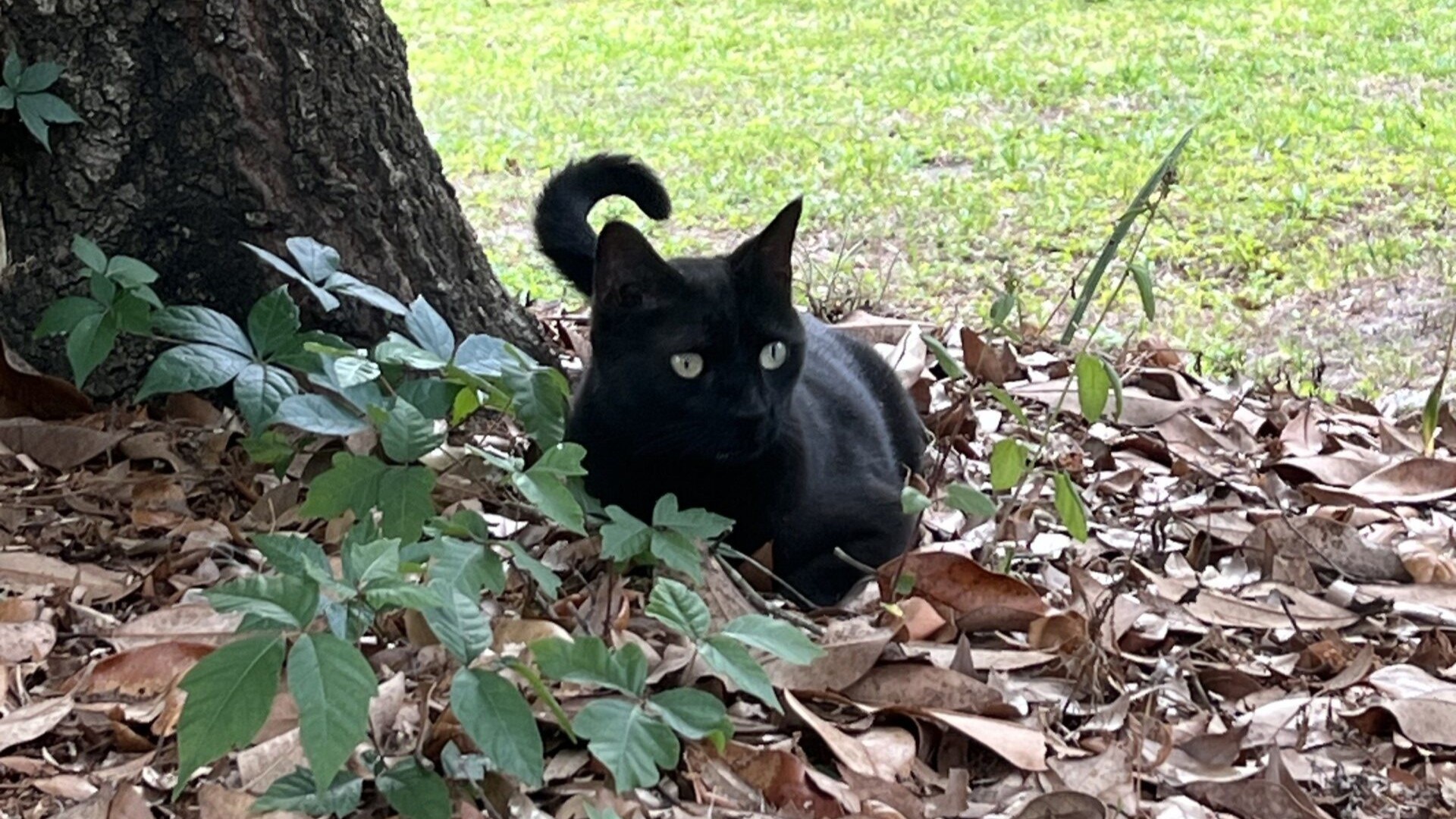Scientist's cat helps discover a rare virus — yet again
Pepper the cat, whose owner works at the University of Florida, gathered a specimen containing a never-before-seen virus for the second time.

Get the world’s most fascinating discoveries delivered straight to your inbox.
You are now subscribed
Your newsletter sign-up was successful
Want to add more newsletters?

Delivered Daily
Daily Newsletter
Sign up for the latest discoveries, groundbreaking research and fascinating breakthroughs that impact you and the wider world direct to your inbox.

Once a week
Life's Little Mysteries
Feed your curiosity with an exclusive mystery every week, solved with science and delivered direct to your inbox before it's seen anywhere else.

Once a week
How It Works
Sign up to our free science & technology newsletter for your weekly fix of fascinating articles, quick quizzes, amazing images, and more

Delivered daily
Space.com Newsletter
Breaking space news, the latest updates on rocket launches, skywatching events and more!

Once a month
Watch This Space
Sign up to our monthly entertainment newsletter to keep up with all our coverage of the latest sci-fi and space movies, tv shows, games and books.

Once a week
Night Sky This Week
Discover this week's must-see night sky events, moon phases, and stunning astrophotos. Sign up for our skywatching newsletter and explore the universe with us!
Join the club
Get full access to premium articles, exclusive features and a growing list of member rewards.
A scientist's cat shot to fame last year for his role in the discovery of the United States' first-known jeilongvirus. Now, the feline has replicated his success by fetching yet another animal containing a never-before-seen bug.
The newfound virus was found in a dead Everglades short-tailed shrew (Blarina peninsulae), which Pepper the cat brought home following a successful hunting trip near his home in Gainesville, Florida. John Lednicky, Pepper's owner and a virologist at the University of Florida, retrieved his pet's catch and took it to the lab for testing.
The results revealed that the shrew carried a never-before-seen strain of Orthoreovirus — a poorly understood viral genus that's known to infect birds and various mammals, including humans, white-tailed deer and bats. Lednicky and his colleagues published their findings June 10 in the journal Microbiology Resource Announcements.
"The bottom line is we need to pay attention to orthoreoviruses, and know how to rapidly detect them," Lednicky said in a statement. That's because there have been reported cases of them causing serious illness in humans.
First discovered in the 1950s, orthoreoviruses spread through poop or inhaled droplets and typically infect the respiratory or intestinal tracts of their hosts.
They were named "orphan viruses" because they were not initially associated with any known diseases — meaning scientists thought they didn't cause any serious conditions. Since then, though, orthoreoviruses have been linked to rare cases of brain swelling (encephalitis), swelling of the tissues over the brain's surface (meningitis) and inflammation of the digestive tract (gastroenteritis) in children, the statement noted.
Related: New viruses identified in bats in China
Get the world’s most fascinating discoveries delivered straight to your inbox.
After isolating the virus from the dead shrew, Lednicky and his colleagues analyzed the virus' genome and discovered it was a new strain, which they named Gainesville shrew mammalian orthoreovirus type 3 strain UF-1.
The existence of the new strain is unsurprising, because viruses constantly evolve and generate new strains. One way new strains can emerge is that two different viruses can infect a host cell at the same time and then swap genes, Lednicky noted.
"I'm not the first one to say this, but essentially, if you look, you'll find, and that's why we keep finding all these new viruses," Lednicky said.
Researchers still have many questions about orthoreoviruses, including how often they infect humans and animals, how sick they could make us, and all the ways they can spread. For instance, orthoreoviruses with nearly identical genes to one another have been found in deer in the U.S., farmed mink in China, and a lion in Japan, raising the possibility that they may have been transmitted through feedstock made by the same manufacturer.
The researchers say their next steps will be exposing the virus to blood serum of potential hosts and running immunology studies to better understand the threats the newfound strain may pose to humans and wildlife. For the moment, "not enough is known about this recently identified virus to be concerned," study lead author Emily DeRuyter, a doctoral candidate at the University of Florida, said in the statement.
As for Pepper, the virologists say he has shown no signs of illness and will continue to contribute to scientific research through his hunting.
"This was an opportunistic study," Lednicky said. "If you come across a dead animal, why not test it instead of just burying it? There is a lot of information that can be gained."

Ben Turner is a U.K. based writer and editor at Live Science. He covers physics and astronomy, tech and climate change. He graduated from University College London with a degree in particle physics before training as a journalist. When he's not writing, Ben enjoys reading literature, playing the guitar and embarrassing himself with chess.
You must confirm your public display name before commenting
Please logout and then login again, you will then be prompted to enter your display name.
 Live Science Plus
Live Science Plus










